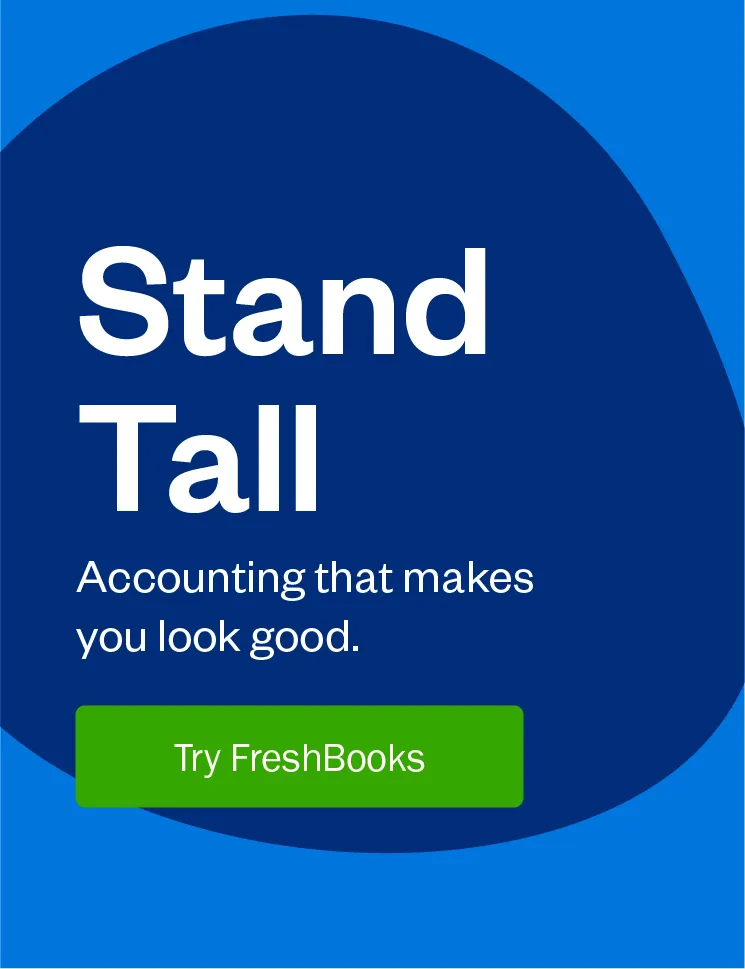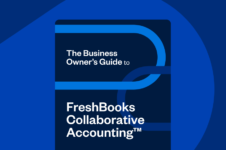Check out these compelling business reasons to reduce your paper consumption—plus tips on how to painlessly achieve paperless status.

Office life has come a long way from clacking typewriters and finicky fax machines. Many entrepreneurs take care of business with little more than a laptop, a smartphone and a printer.
But don’t go patting yourself on the back for your frugal and eco-friendly ways just yet. How much paper passes through your office every day? Do you invoice and pay bills by post? Are you in the habit of printing important documents and manually filing them? Is your desk buried in mail? Do you print reports or presentations and edit with a pen?
If you answered yes to 2 or more of those questions, you’re probably in the same category as the average American who uses more than 700 pounds of paper every year.
Here’s why—and how—to be a friend to trees everywhere and scale back on your paper consumption.
Why Go Paperless?
Approximately 300 million tons of paper is produced every year. That’s a lot of trees. When you add the carbon footprint associated with cutting them down, manufacturing and transporting the end products (not to mention the effects of deforestation), every sheet of paper has a steep environmental cost. Doing your part to preserve forests and combat climate change is clearly the primary benefit of reducing or eliminating the use of paper in your small business.
Did you know there are some compelling business reasons too? Here are six.
1. Save Time
Do you print documents to review them? Hard copies require management and maintenance. Consider how much time you spend transferring your edits on paper back into an electronic file. If you keep paper records, filing—and searching for files—can take more time and mental energy than you think.
2. Reduce Clutter and Save Space
Imagine an office without the requisite steel filing cabinet or stuffed cardboard filing boxes jammed into a corner or a closet. And how about those piles of paper on your desk? Do a de-paper makeover and reclaim space with something beautiful, like a plant, or useful, like an espresso maker.
3. Save Money
Paper may only be a few cents a sheet, but its accessories add up to a lot more. A good-quality printer, pricey ink cartridges and storage receptacles like filing cabinets and archival boxes can cost hundreds of dollars a year. And if you’re still sending invoices and paying bills by mail, those postage or delivery service charges take a bite out of your bottom line too.
4. Be More Agile
In today’s 24/7 world, you can’t afford to tell a client, “Sorry, the file is at the office.” Small business owners are renowned for their multi-tasking ways. You need to be able to answer an email, whip off a document and send an invoice anytime and from anywhere. If you rely on paper, that’s just not possible.
5. Enjoy More Security
If your important documents are paper-based, you’ve got a big problem if your office is hit with a fire, flood, robbery or other disaster. One of the main reasons many businesses are turning to cloud-based solutions is for their security. Everything from accounting to project and client files can be encrypted for protection and are backed up regularly, making them virtually untouchable and infinitely safe.
6. Provide Better Customer Service
Forget about pawing through paper files when a client calls with a question or dealing with the panic that comes with a misplaced hard copy. When your operations are digital, you have instant access to everything. Accounting, project management and other software keep track of all communications and resources so it’s downright difficult to lose anything.
How To Go Paperless
Whether you’re a person who jealously guards every scrap of paper or you’re almost there, digitally-speaking, here are some tips to wean you off the pulp for good.
Convert Paper Files to Digital
If you’ve been in business for more than a few years, you’ve probably built up a cache of paper files from your pre-digital days. Set aside a day or two to carefully go through them. Scan or take a photo of the ones you want to keep so you have a digital record. Then, shred sensitive documents and keep old PowerPoint docs and reports to be used as scrap paper for notes, lists and doodling.
Create an Airtight Digital Filing System
You’re only as efficient as your electronic filing system. Take time to think about how you intuitively access files. You might set up folders for each client or each type of project, with sub-folders by project or date. Be consistent and scrupulous when it comes to maintaining your filing system.
Use Cloud-Based Apps
From accounting to project management to payments, there’s nothing more convenient than cloud-based software. Your data is safe, secure and easy to access. Useful small business apps include:
- FreshBooks for accounting
- Google Docs to collaborate on documents
- Dropbox to share files
- Basecamp for simple project management
- Evernote to take digital notes
- Stripe for online payments
Register for Paperless Billing
Assess everything you get in the mail throughout a month—from your utility bill to your financial statements to your professional association information. Then register for an option to receive email notifications and newsletters and pay bills online. If you fear important emails will get lost in a busy inbox, set up subfolders or a separate address for billing-related emails. Then create a calendar notification to remind you to check in once or twice a month.
Make a Digital-Only Marketing Strategy
If you’re still placing newspaper ads and printing flyers, it’s time to update your marketing methods. With a one-two punch you’ll save the environment and reach more potential customers when you invest in targeted online ads, craft clever blog posts and connect with others on social media.
Sign Documents Digitally
The home printer may go the way of the Dodo just like the fax machine now that most countries have laws that make electronically-signed contracts as legally valid as those signed with pen and paper. There are lots of easy ways to create a signature on your computer, including in Microsoft Word, or use services like HelloSign and DocuSign.
Get Dual Monitors for Your Desk
If you’re the kind of person who likes to look at a few documents at once without having to incessantly toggle between apps or tabs, get two monitors for your desk. This will cut down on the urge to print so you can compare facts or figures to a document open on your computer.
Take Notes on Your Computer or Use Voice-Recording Software
There are few tools a writer or a lawyer loves more than a good notebook. But scribbling notes from an interview or a meeting on paper is inefficient and wasteful. Ditch those reams of paper and type those notes straight into a Word doc. They’ll be more accessible and useful to you when you need them later. If your WPM is not up to speed, consider voice-recording software that’ll take all the notes you need for you.
With more technology solutions available than ever before, a paperless office is within reach for most small businesses. It might take a little adjustment, but the Earth—and your bottom line—will thank you.

Written by Heather Hudson, Freelance Contributor
Posted on April 22, 2021

 WeWork Guest Post: 12 Perks of Coworking Workspaces
WeWork Guest Post: 12 Perks of Coworking Workspaces Shopping for a New Accounting Solution? Don’t Overlook Customer Support
Shopping for a New Accounting Solution? Don’t Overlook Customer Support
![Is Your Small Business Ready for Cloud Accounting? [Self-Assessment] cover image](https://prod-blog-k8s.freshenv.com/blog/wp-content/uploads/2017/07/cloud-600x400.jpg) Is Your Small Business Ready for Cloud Accounting? [Self-Assessment]
Is Your Small Business Ready for Cloud Accounting? [Self-Assessment] How Secure Is Your Data in the Cloud?
How Secure Is Your Data in the Cloud?




